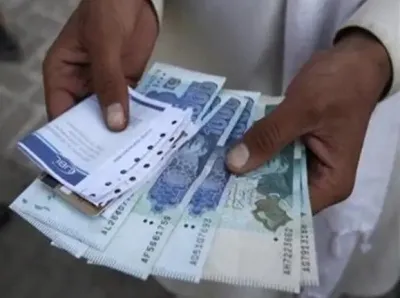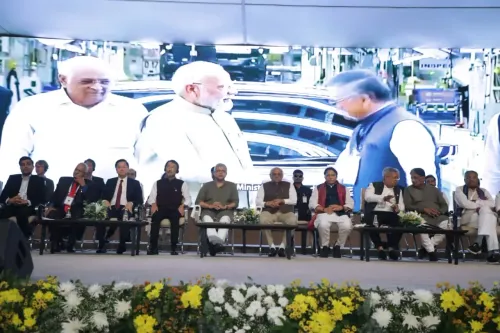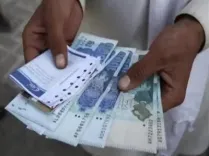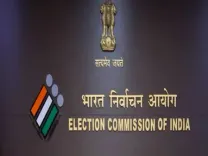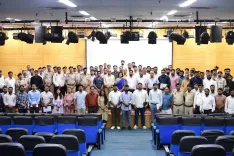Is Tata Group Facing Internal Disputes a Year After Ratan Tata's Passing?
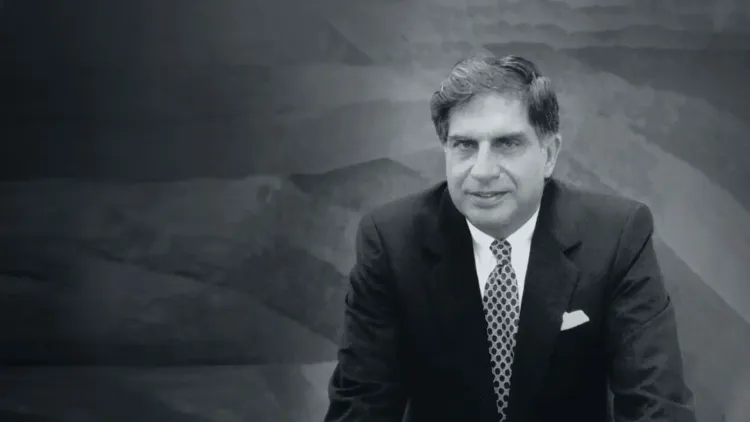
Synopsis
Key Takeaways
- Ratan Tata's principles continue to inspire millions.
- Internal disputes within Tata Group pose risks to its legacy.
- The market capitalization has significantly declined.
- Ratan Tata was a pioneer in ethical leadership.
- His philanthropic efforts transformed healthcare and education.
New Delhi, Oct 9 (NationPress) It’s not merely about making the right choice, but about ensuring the choice is made right. These profound words from the late Ratan Tata continue to resonate with millions across India. As the nation commemorates his first death anniversary today, his principles of integrity, humility, and innovation remain deeply embedded in the fabric of both business and society.
Ratan Tata, who departed on October 9, 2024, was more than just a business magnate; he was a beacon of ethical leadership.
As the former chairman of Tata Sons, he redefined the Tata Group, transforming it into a global giant while adhering to the principles of trust and social responsibility.
However, a year after his demise, the organization he nurtured with dedication and vision is now confronted with internal strife.
The Tata Trusts—the philanthropic arm overseeing approximately 66 percent of Tata Sons—has found itself embroiled in internal conflicts.
The reported disputes revolve around board appointments and governance issues, leading to the formation of two factions: one led by Noel Tata and another comprising four trustees aligned with Mehli Mistry, linked to the Shapoorji Pallonji family.
This internal division became evident following the controversy surrounding the rejected reappointment of Vijay Singh to the Tata Sons board.
Consequently, Singh voluntarily resigned, and reports indicate that this infighting could hinder the operations of the $180 billion conglomerate.
Speculation is rife that the government may intervene to protect the group's legacy.
In the interim, the market value of Tata Group companies has fallen by over Rs. 7 lakh crore, a 21 percent decline over the past year since the patriarch's passing. The market capitalization of the group’s 23 publicly listed companies has dwindled from Rs 33.57 lakh crore to around Rs 26.39 lakh crore.
Despite these challenges, Ratan Tata’s vision continues to steer the Tata Group and the broader Indian business landscape.
Born in 1937 to Naval and Sooni Tata, he was raised by his grandmother, Lady Navajbai Tata, following his parents' separation.
After earning his engineering degree from Cornell University and completing a management program at Harvard Business School, Tata joined the family business in 1962.
He ascended to the chairmanship of Tata Sons in 1991, heralding a new era of expansion and innovation.
Under his stewardship, the Tata Group ventured into diverse sectors including telecommunications and automobiles.
He introduced India’s first indigenous car, the Tata Indica, followed by the Nano, known as the world’s most affordable car.
He also launched the Ginger hotel chain and oversaw over 60 international acquisitions, including famous brands such as Jaguar Land Rover and Tetley Tea.
One of his significant achievements was taking Tata Consultancy Services (TCS) public, establishing it as India’s most valuable enterprise.
Beyond the corporate realm, Ratan Tata’s impact was significant. Honored with the Padma Vibhushan in 2008, he devoted a significant portion of his life to philanthropy.
Through Tata Trusts, he made strides in enhancing healthcare, education, and rural development, contributing to the establishment of advanced cancer care centers and India’s largest tertiary care facility for small animals in Mumbai.
Even post-retirement, Tata remained actively engaged in mentoring startups and young entrepreneurs.
Ratan Tata’s life and legacy exemplified a unique blend of business excellence and compassion. A year after his passing, his legacy serves as a powerful reminder that true leadership transcends power and profit; it is rooted in purpose and humanity—values that India continues to uphold and aspire towards.

